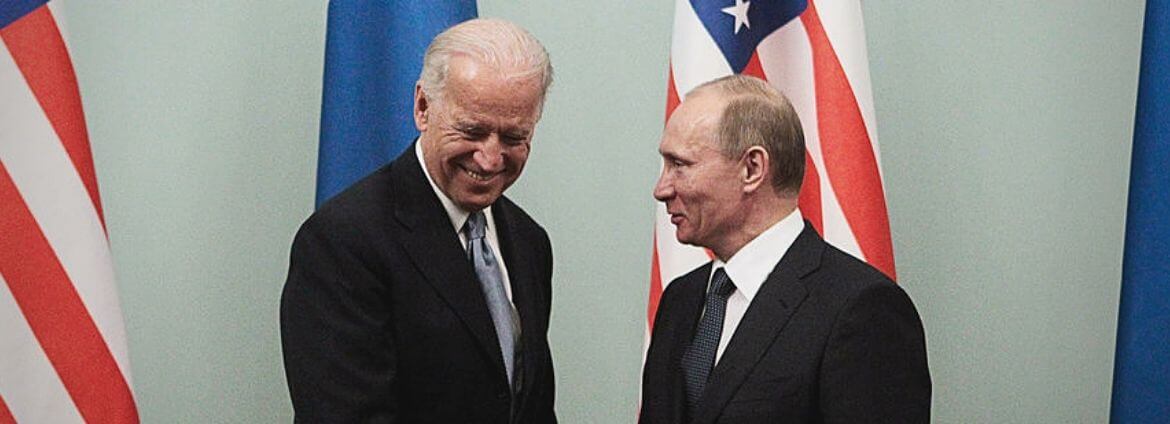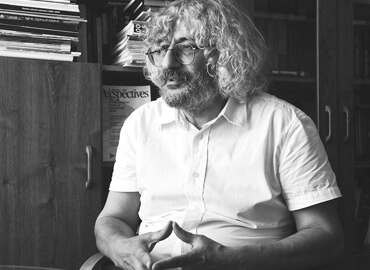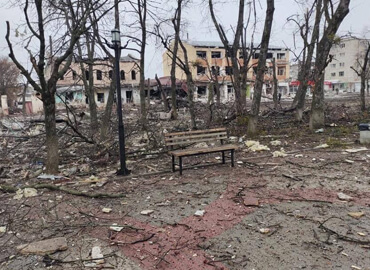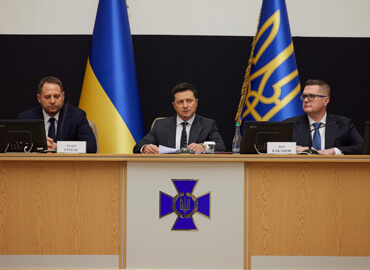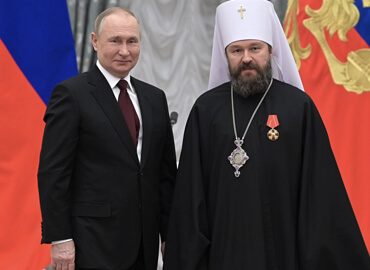Biden’s European tour is over. It was well prepared and was a very convincing public demonstration of the idea of reestablishing the involvement of the collective West, including Johnson and the Atlantic Charter, the discussion of specific strategic topics at the G7 summit, the NATO summit with a tough communiqué, and the restoring of relations with Brussels. All this will create many new paths and much work for those interested in strengthening the North Atlantic political and defense alliance.
The significant tour ended with a meeting with Putin, from which no one expected much. There was, in fact, active discussion as to whether it was needed at all.
The arguments of those who thought they were not needed are quite convincing. In the U.S. and the European Union, following the constitutional amendments, the arrest of Navalny in Russia, and then the repressions in Belarus, there are few politicians and public figures left in Belarus who do not see that the two dictatorships in the east have entered a new phase. The novelty of the situation lies in the fact that in the past both regimes «maneuvered» and their intolerable actions led to sanctions – Belarus in 2006 and Russia in 2014 – and the authoritarian nature of their power was more and more clearly manifested. For the new urban elite focused on global standards of development there was also some space for social and even political action. And both regimes preserved their intent to maintain a presence in international organizations.
But in the seven years since the aggression against Ukraine things have not improved. This is not about «incidents» of human rights violations or unfriendly actions against other countries, but about provocative and cynical events. They are clearly aimed at demonstrating a form of total nihilism in relative to those universal norms that are held in international documents signed in the past by the USSR, and then by Russia and Belarus. The Kremlin and Lukashenko, who has stood by Russia, unequivocally are looking to prod the West into a large conflict. In the east of Europe something has taken hold about which it is no longer possible to say «Europe from Lisbon to Vladivostok,» noted Wolfgang Ischinger at last year’s Munich Security Conference. European diplomacy has been guided by this formula for 30 years, and this formula fell apart. That is why now not only sanctions as such are required, but a whole new strategy.
In preparation for and during Biden’s European tour, a great deal of discussion took place on this subject. All interested parties have made suggestions for a policy in the East.
Biden met with Putin after he was able to familiarize himself with notes from his European tour. And in them we see what will be deployed as programs in response to the Kremlin’s refusal to participate in de-escalation.
New projects are outlined in the resolution of the European Parliament along the lines of
1) containment,
2) limiting the Kremlin’s influence within Europe,
3) strengthening democracy within the European Union, and
4) support of Russian and Belarusian pro-democratic forces.
The following programs result from the NATO communiqué:
1) strengthening the «eastern flank,»
2) military support for Ukraine in the event of aggression from Moscow,
3) classifying hybrid actions as aggression falling under Article 5, and
4) confirming a course of action that includes Georgia and Ukraine in NATO. At the Biden meeting in Brussels, they agreed to create a permanent strategic dialogue on Russia.
If Biden’s strategy of awakening a stronger consolidation of Western states develops further, they will retain all those instruments of pressure on the Kremlin that have been discussed over the past six months. The blocking of the Nord Stream, sanctions on high-tech components (chips), the initiating of court decisions that will lead to the seizing of Russian assets in various countries, and consolidated sanctions against the largest Russian state monopolies, in which Rostec and Russian state banks will lose the ability to operate in third countries.
What comes next depends on two conditions: whether Putin will take convincing de-escalation measures over the next six months and whether the European tour will truly reunite the collective West and awaken a new vitality.
Since we are interested both in Putin reducing the speed of the galloping escalation of his conflict with the West and in bringing European and Atlantic solidarity to a new stage, we must take advantage of the opportunities that have opened following the new decisions and vigorously fill in the agendas that have been agreed upon by the leaders of the many countries met during Biden’s European tour. This would be more sensible than simply grieving over the impotence of the West.
Материал доступен на русском языке: Возвращение коллективного Запада



